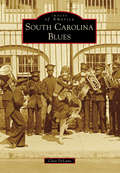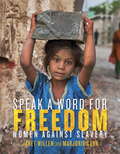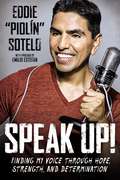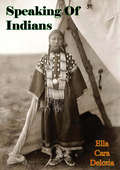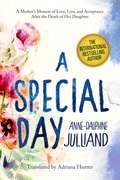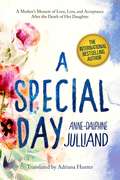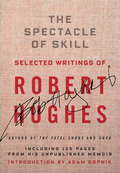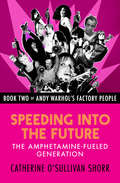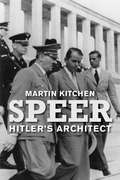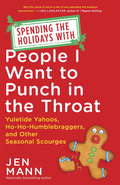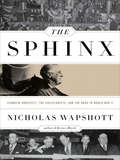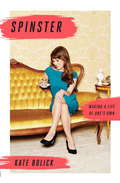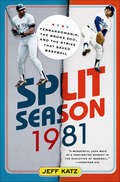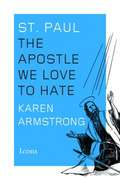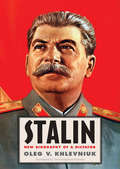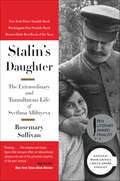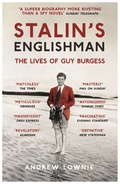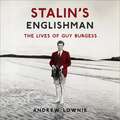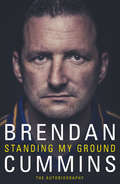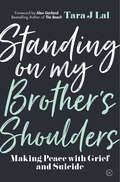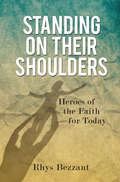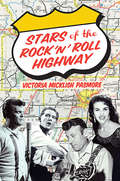- Table View
- List View
South Carolina Blues
by Clair DeluneThe history of South Carolina blues is a long, deep--and sometimes painful--story. However, it is a narrative with aspects as compelling as the music itself. Geographical differences in America led to variations in the styles of music that developed from African rhythms. The wet, marshy landscape and hot, muggy weather of the Carolina Lowcountry combined to cultivate not only rice, but a Gullah-based style of South Carolina blues. In drier climates, toward the Midlands and the Upstate, the combination of European influences led to the emergence of Piedmont blues, which in turn spawned country music as well as bluegrass. Those same Gullah roots resulted in four major dance crazes, starting with the Charleston.
Speak a Word for Freedom
by Janet Willen Marjorie GannFrom the early days of the antislavery movement, when political action by women was frowned upon, British and American women were tireless and uncompromising campaigners. Without their efforts, emancipation would have taken much longer. And the commitment of today's women, who fight against human trafficking and child slavery, descends directly from that of the early female activists. Speak a Word for Freedom: Women against Slavery tells the story of fourteen of these women. Meet Alice Seeley Harris, the British missionary whose graphic photographs of mutilated Congolese rubber slaves in 1904 galvanized a nation; Hadijatou Mani, the woman from Niger who successfully sued her own government in 2008 for failing to protect her from slavery, as well as Elizabeth Freeman, Elizabeth Heyrick, Ellen Craft, Harriet Tubman, Harriet Beecher Stowe, Frances Anne Kemble, Kathleen Simon, Fredericka Martin, Timea Nagy, Micheline Slattery, Sheila Roseau and Nina Smith. With photographs, source notes, and index. Ellen Craft, Harriet Tubman, Harriet Beecher Stowe, Frances Anne Kemble, Kathleen Simon, Fredericka Martin, Timea Nagy, Micheline Slattery, Sheila Roseau and Nina Smith. With photographs, source notes, and index.
Speak Up!: Finding My Voice Through Hope, Strength, and Determination
by Emilio Estefan Eddie Piolin" SoteloIn Speak Up!, radio icon Eddie "Piolín" Sotelo opens up for the first time about his humble beginnings and the long, hard road to finding purpose and achieving triumph. <P><P>Drawing upon his strong family values and his unflinching work ethic, Piolín recounts his very personal and resilient story--how a once undocumented immigrant rose to become the voice of a generation and a symbol of hope. Through intimate, uplifting and engaging real-life accounts, Piolin shares profound inspiration, wisdom, and guidance with his legions of fans and listeners who are searching for their own paths to success and happiness.
Speaking Of Indians
by Ella Cara Deloria Vine Deloria Jr.Beginning with a general discussion of American Indian origins, language families, and culture areas, Deloria then focuses on her own people, the Dakotas, and the intricate kinship system that governed all aspects of their life. She writes, "Exacting and unrelenting obedience to kinship demands made the Dakotas a most kind, unselfish people, always acutely aware of those about them and innately courteous."Deloria goes on to show the painful transition to reservations and how the holdover of the kinship system worked against Indians trying to follow white notions of progress and success. Her ideas about what both races must do to participate fully in American life are as cogent now as when they were first written.Originally published in 1944, "Speaking of Indians" is an important source of information about Dakota culture and a classic in its elegant clarity of insight.
A Special Day
by Adriana Hunter Anne-Dauphine JulliandFebruary 29th is a date that comes into existence just once every four years. It is also the birthday of Thaïs-author Anne-Dauphine Julliand's darling daughter-who died of a genetic disease. Thaïs lived just shy of her fourth birthday. She had a short life but good one.As this special day is about to reappear on her calendar for the first time since her daughter passed away, Anne-Dauphine struggles with how to mark this momentous occasion. She wants to live fully on this special day: Thais would have been eight years old. Vivid memories of life with her daughter begin to blend with the present-every gesture, every word evokes a buried memory, arouses laughter or tears. Yet as the date of her daughter's birthday approaches, she knows she must not lose sight of the family who needs her now: her sons Gaspard and Arthur, and Azylis, her other daughter who is also sick.Anne-Dauphine's message remains simple, true, and strong: we all need to be loved and we all need to be happy despite our ordeals. This is both lesson in happiness and a wonderful love story-A Special Day is an honest, inspirational tale that has touched the hundreds of thousands of lives. It will leave the reader breathless with its beauty.
A Special Day: A Mother?s Memoir of Love, Loss, and Acceptance After the Death of Her Daughter
by Anne-Dauphine JulliandFebruary 29th is a date that comes into existence just once every four years. It is also the birthday of Thaïs-author Anne-Dauphine Julliand’s darling daughter-who died of a genetic disease. Thaïs lived just shy of her fourth birthday. She had a short life but good one.As this special day is about to reappear on her calendar for the first time since her daughter passed away, Anne-Dauphine struggles with how to mark this momentous occasion. She wants to live fully on this special day: Thais would have been eight years old. Vivid memories of life with her daughter begin to blend with the present-every gesture, every word evokes a buried memory, arouses laughter or tears. Yet as the date of her daughter's birthday approaches, she knows she must not lose sight of the family who needs her now: her sons Gaspard and Arthur, and Azylis, her other daughter who is also sick.Anne-Dauphine's message remains simple, true, and strong: we all need to be loved and we all need to be happy despite our ordeals. This is both lesson in happiness and a wonderful love story-A Special Day is an honest, inspirational tale that has touched the hundreds of thousands of lives. It will leave the reader breathless with its beauty.Skyhorse Publishing, along with our Arcade, Good Books, Sports Publishing, and Yucca imprints, is proud to publish a broad range of biographies, autobiographies, and memoirs. Our list includes biographies on well-known historical figures like Benjamin Franklin, Nelson Mandela, and Alexander Graham Bell, as well as villains from history, such as Heinrich Himmler, John Wayne Gacy, and O. J. Simpson. We have also published survivor stories of World War II, memoirs about overcoming adversity, first-hand tales of adventure, and much more. While not every title we publish becomes a New York Times bestseller or a national bestseller, we are committed to books on subjects that are sometimes overlooked and to authors whose work might not otherwise find a home.
The Spectacle of Skill
by Robert Hughes Adam Gopnik"I am completely an elitist, in the cultural but emphatically not the social sense. I prefer the good to the bad, the articulate to the mumbling, the aesthetically developed to the merely primitive, and full to partial consciousness. I love the spectacle of skill, whether it's an expert gardener at work, or a good carpenter chopping dovetails . . . I don't think stupid or ill-read people are as good to be with as wise and fully literate ones. I would rather watch a great tennis player than a mediocre one . . . Consequently, most of the human race doesn't matter much to me, outside the normal and necessary frame of courtesy and the obligation to respect human rights. I see no reason to squirm around apologizing for this. I am, after all, a cultural critic, and my main job is to distinguish the good from the second-rate." Robert Hughes wrote with brutal honesty about art, architecture, culture, religion, and himself. He translated his passions--of which there were many, both positive and negative--brilliantly, convincingly, and with vitality and immediacy, always holding himself to the same rigorous standards of skill, authenticity, and significance that he did his subjects. There never was, and never will be again, a voice like this. In this volume, that voice rings clear through a gathering of some of his most unforgettable writings, culled from nine of his most widely read and important books. This selection shows his enormous range and gives us a uniquely cohesive view of both the critic and the man. Most revealing, and most thrilling for Hughes's legions of fans, are the never-before-published pages from his unfinished second volume of memoirs. These last writings show Robert Hughes at the height of his powers and can be read only with pleasure and a tinge of sadness that his extraordinary voice is no longer here to educate us as well as to clarify and define our world.From the Hardcover edition.
The Spectacle of Skill: New and Selected Writings of Robert Hughes
by Adam Gopnik Robert Hughes"I am completely an elitist, in the cultural but emphatically not the social sense. I prefer the good to the bad, the articulate to the mumbling, the aesthetically developed to the merely primitive, and full to partial consciousness. I love the spectacle of skill, whether it's an expert gardener at work, or a good carpenter chopping dovetails . . . I don't think stupid or ill-read people are as good to be with as wise and fully literate ones. I would rather watch a great tennis player than a mediocre one . . . Consequently, most of the human race doesn't matter much to me, outside the normal and necessary frame of courtesy and the obligation to respect human rights. I see no reason to squirm around apologizing for this. I am, after all, a cultural critic, and my main job is to distinguish the good from the second-rate." Robert Hughes wrote with brutal honesty about art, architecture, culture, religion, and himself. He translated his passions--of which there were many, both positive and negative--brilliantly, convincingly, and with vitality and immediacy, always holding himself to the same rigorous standards of skill, authenticity, and significance that he did his subjects. There never was, and never will be again, a voice like this. In this volume, that voice rings clear through a gathering of some of his most unforgettable writings, culled from nine of his most widely read and important books. This selection shows his enormous range and gives us a uniquely cohesive view of both the critic and the man. Most revealing, and most thrilling for Hughes's legions of fans, are the never-before-published pages from his unfinished second volume of memoirs. These last writings show Robert Hughes at the height of his powers and can be read only with pleasure and a tinge of sadness that his extraordinary voice is no longer here to educate us as well as to clarify and define our world.From the Hardcover edition.
Speeding into the Future: The Amphetamine-Fueled Generation (Andy Warhol's Factory People #2)
by Catherine O'Sullivan ShorrThe 2nd volume of an intimate oral history vividly, Speeding into the Future recounts how Andy Warhol and his superstars revolutionized both the art world and the nature of celebrity in the mid-1960s Spanning from 1965 through 1966, 2 years that could be considered the pinnacle of Andy Warhol's creative output, Speeding into the Future features firsthand accounts of life inside the Silver Factory. Powered by a steady supply of amphetamines, Quaaludes, and other drugs, the artists and misfits of the Factory crowd generated Warhol's controversial films and art while their own star-quotients rose and declined--and as they fell in and out of love with one another. During this period, Warhol created the notion of the "It Girl" by declaring debutante Edie Sedgwick the 1965 "Girl of the Year" and predicting her skyrocketing yet short-lived fame; he introduced German-born singer Nico to Lou Reed and John Cale of the Velvet Underground, hosting their rehearsals at the Factory; and codirected, with Paul Morrissey, his most commercially successful film, Chelsea Girls, featuring Nico, Brigid Berlin, Ondine, and other superstars. Speeding into the Future includes revelatory images snapped by Billy Name and other photographers as Bob Dylan visited the Factory, and goes behind the scenes of Warhol's films of Ondine, Ultra Violet, Taylor Mead, and Viva. In this powerful chronicle, Catherine O'Sullivan Shorr captures the events of these dizzying, outrageous years through the words of those who lived through them.
Speer: Hitler's Architect
by Martin KitchenIn his best-selling autobiography, Albert Speer, Minister of Armaments and chief architect of Nazi Germany, repeatedly insisted he knew nothing of the genocidal crimes of Hitler's Third Reich. In this revealing new biography, author Martin Kitchen disputes Speer's lifelong assertions of ignorance and innocence, portraying a far darker figure who was deeply implicated in the appalling crimes committed by the regime he served so well. Kitchen reconstructs Speer's life with what we now know, including information from valuable new sources that have come to light only in recent years, challenging the portrait presented by earlier biographers and by Speer himself of a cultured technocrat devoted to his country while completely uninvolved in Nazi politics and crimes. The result is the first truly serious accounting of the man, his beliefs, and his actions during one of the darkest epochs in modern history, not only countering Speer's claims of non-culpability but also disputing the commonly held misconception that it was his unique genius alone that kept the German military armed and fighting long after its defeat was inevitable. "
Spending the Holidays with People I Want to Punch in the Throat: Yuletide Yahoos, Ho-Ho-Humblebraggers, and Other Seasonal Scourges
by Jen MannFor fans of Laurie Notaro and Jenny Lawson comes an uproarious and oddly endearing essay collection for anyone trying to survive the holidays in one piece. When it comes to time-honored holiday traditions, Jen Mann pulls no punchesIn this hilariously irreverent collection of essays, Jen Mann, nationally bestselling author of People I Want to Punch in the Throat, turns her mordant wit on the holidays. On Mann's naughty list: mothers who go way overboard with their Elf on the Shelf, overzealous carolers who can't take a hint, and people who write their Christmas cards in the third person ("Joyce is enjoying Bunko. Yeah, Joyce, we know you wrote this letter."). And on her nice list . . . well, she's working on that one. Here, no celebration is off-limits. The essays include:* You Can Keep Your Cookies, I'm Just Here for the Booze* Nice Halloween Costume. Was Skank Sold Out?* Why You Won't Be Invited to Our Chinese New Year Party From hosting an ill-fated Chinese New Year party, to receiving horrible gifts from her husband on Mother's Day, to reluctantly telling her son the truth about the Easter Bunny, Mann knows the challenge of navigating the holidays while keeping her sanity intact. And even if she can't get out of attending another Christmas cookie exchange, at least she can try again next year.
The Sphinx: Franklin Roosevelt, the Isolationists, and the Road to World War II
by Nicholas WapshottBefore Pearl Harbor, before the Nazi invasion of Poland, America teetered between the desire for isolation and the threat of world war. May 1938. Franklin Delano Roosevelt--recently reelected to a second term as president--sat in the Oval Office and contemplated two possibilities: the rule of fascism overseas, and a third term. With Hitler's reach extending into Austria, and with the atrocities of World War I still fresh in the American memory, Roosevelt faced the question that would prove one of the most defining in American history: whether to once again go to war in Europe. In The Sphinx, Nicholas Wapshott recounts how an ambitious and resilient Roosevelt--nicknamed "the Sphinx" for his cunning, cryptic rapport with the press--devised and doggedly pursued a strategy to sway the American people to abandon isolationism and take up the mantle of the world's most powerful nation. Chief among Roosevelt's antagonists was his friend Joseph P. Kennedy, a stock market magnate and the patriarch of what was to become one of the nation's most storied dynasties. Kennedy's financial, political, and personal interests aligned him with a war-weary American public, and he counted among his isolationist allies no less than Walt Disney, William Randolph Hearst, and Henry Ford--prominent businessmen who believed America had no business in conflicts across the Atlantic. The ensuing battle--waged with fiery rhetoric, agile diplomacy, media sabotage, and petty political antics--would land US troops in Europe within three years, secure Roosevelt's legacy, and set a standard for American military strategy for years to come. With millions of lives--and a future paradigm of foreign intervention--hanging in the balance, The Sphinx captures a political giant at the height of his powers and an American identity crisis that continues to this day.
Spinster: Making a Life of One's Own
by Kate Bolick'Whom to marry and when will it happen - these two questions define every woman's existence.' So begins Spinster, a revelatory look at the pleasures, problems and possibilities of living independently in the 21st century, reconsidering what it means - what it could mean - for women to 'have it all'.'I wish I could give this wise and subtle book to my thirty-year-old self; she would have taken heart . . . Bold and intelligent' Rebecca Mead, author of My Life in Middlemarch'A triumph' Malcolm Gladwell'Women of the world listen here: drop whatever you're doing and read Kate Bolick's marvelous meditation on what it means to be female at the dawn of the 21st century' Joanna Rakoff, author of My Salinger Year'Moving, insightful and important' Elif Batuman, author of The Possessed
Split Season 1981: Fernandomania, the Bronx Zoo, and the Strike that Saved Baseball
by Jeff KatzThe never-before-told story of the momentous season torn in half by the bitter players strike. Sourcing incredible and extensive interviews with almost all of the major participants in the strike, Split Season: 1981 returns us to the on- and off-field drama of an unforgettable baseball year. 1981 was a watershed moment in American sports, when players turned an oligarchy of owners into a game where they had a real voice. Midway through the season, a game-changing strike ripped baseball apart, the first time a season had ever been stopped in the middle because of a strike. Marvin Miller and the MLB Players Association squared off against Baseball Commissioner Bowie Kuhn and the owners in a fight to protect players rights to free agency and defend America's pastime.Though a time bomb was ticking as the 1981 season began, the game rose to impressive---and now legendary---heights. Pete Rose chased Stan Musial's National League hit record and rookie Fernando Valenzuela was creating a sensation as the best pitcher in the majors when the stadiums went dark and the players went on strike.For the first time in modern history, there were first- and second-half champions; the two teams with the overall best records in the National League were not awarded play-off berths. When the season resumed after an absence of 712 games, Rose's resumption of his pursuit, the resurgence of Reggie Jackson, the rise of the Montreal Expos, and a Nolan Ryan no-hitter became notable events. The Dodgers bested their longtime rivals in a Yankees-Dodgers World Series, the last classic matchup of those storied opponents.
St. Paul: The Apostle We Love to Hate
by Karen ArmstrongSt. Paul is known throughout the world as the first Christian writer, authoring fourteen of the twenty-seven books in the New Testament. But as Karen Armstrong demonstrates, he also exerted a more significant influence on the spread of Christianity throughout the world than any other figure in history. It was Paul who established the first Christian churches in Europe and Asia in the first century, Paul who transformed a minor sect into the largest religion produced by Western civilization, and Paul who advanced the revolutionary idea that Christ could serve as a model for the possibility of transcendence. While we know little about some aspects of the life of St. Paul--his upbringing, the details of his death--his dramatic vision of God on the road to Damascus is one of the most powerful stories in the history of Christianity, and the life that followed forever changed the course of history. Some books, long-held to be written by Paul, were not written by him and some of his books were later edited to contain material not by him.
Stalin: New Biography of a Dictator (The\yale-hoover Series On Authoritarian Regimes Ser.)
by Oleg V. KhlevniukAn engrossing biography of the notorious Russian dictator by an author whose knowledge of Soviet-era archives far surpasses all others.Josef Stalin exercised supreme power in the Soviet Union from 1929 until his death in 1953. During that quarter-century, by Oleg Khlevniuk&’s estimate, he caused the imprisonment and execution of no fewer than a million Soviet citizens per year. Millions more were victims of famine directly resulting from Stalin&’s policies. What drove him toward such ruthlessness? This essential biography offers an unprecedented, fine-grained portrait of Stalin the man and dictator. Without mythologizing Stalin as either benevolent or an evil genius, Khlevniuk resolves numerous controversies about specific events in the dictator&’s life while assembling many hundreds of previously unknown letters, memos, reports, and diaries into a comprehensive, compelling narrative of a life that altered the course of world history. In brief, revealing prologues to each chapter, Khlevniuk takes his reader into Stalin&’s favorite dacha, where the innermost circle of Soviet leadership gathered as their vozhd lay dying. Chronological chapters then illuminate major themes: Stalin&’s childhood, his involvement in the Revolution and the early Bolshevik government under Lenin, his assumption of undivided power and mandate for industrialization and collectivization, the Terror, World War II, and the postwar period. At the book&’s conclusion, the author presents a cogent warning against nostalgia for the Stalinist era. &“This brilliant, authoritative, opinionated biography ranks as the best on Stalin in any language.&”—Martin McCauley East-West Review&“A historiographical and literary masterpiece.&”—Mark Edele, Australian Book Review&“A very digestible biography, yet one packed with revelations.&”—Paul E. Richardson, Russian Life Magazine
Stalin and the Struggle for Supremacy in Eurasia
by Alfred J. RieberThis is a major new study of the successor states that emerged in the wake of the collapse of the great Russian, Habsburg, Iranian, Ottoman and Qing Empires and of the expansionist powers who renewed their struggle over the Eurasian borderlands through to the end of the Second World War. Surveying the great power rivalry between the Soviet Union, Nazi Germany and Imperial Japan for control over the Western and Far Eastern boundaries of Eurasia, Alfred J. Rieber provides a new framework for understanding the evolution of Soviet policy from the Revolution through to the beginning of the Cold War. Paying particular attention to the Soviet Union, the book charts how these powers adopted similar methods to the old ruling elites to expand and consolidate their conquests, ranging from colonisation and deportation to forced assimilation, but applied them with a force that far surpassed the practices of their imperial predecessors.
Stalin's Daughter: The Extraordinary and Tumultuous Life of Svetlana Alliluyeva
by Rosemary SullivanWinner of the Plutarch Award for Best BiographyNational Book Critics Circle Award FinalistPEN Literary Award FinalistNew York Times Notable BookWashington Post Notable BookBoston Globe Best Book of the YearThe award-winning author of Villa Air-Bel returns with a painstakingly researched, revelatory biography of Svetlana Stalin, a woman fated to live her life in the shadow of one of history’s most monstrous dictators—her father, Josef Stalin.Born in the early years of the Soviet Union, Svetlana Stalin spent her youth inside the walls of the Kremlin. Communist Party privilege protected her from the mass starvation and purges that haunted Russia, but she did not escape tragedy—the loss of everyone she loved, including her mother, two brothers, aunts and uncles, and a lover twice her age, deliberately exiled to Siberia by her father.As she gradually learned about the extent of her father’s brutality after his death, Svetlana could no longer keep quiet and in 1967 shocked the world by defecting to the United States—leaving her two children behind. But although she was never a part of her father’s regime, she could not escape his legacy. Her life in America was fractured; she moved frequently, married disastrously, shunned other Russian exiles, and ultimately died in poverty in Wisconsin.With access to KGB, CIA, and Soviet government archives, as well as the close cooperation of Svetlana’s daughter, Rosemary Sullivan pieces together Svetlana’s incredible life in a masterful account of unprecedented intimacy. Epic in scope, it’s a revolutionary biography of a woman doomed to be a political prisoner of her father’s name. Sullivan explores a complicated character in her broader context without ever losing sight of her powerfully human story, in the process opening a closed, brutal world that continues to fascinate us.Illustrated with photographs.
Stalin's Englishman: The Lives of Guy Burgess
by Andrew LownieWinner of the St Ermin's Intelligence Book of the Year Award. 'One of the great biographies of 2015.' The TimesFully updated edition including recently released information. A Guardian Book of the Year. The Times Best Biography of the Year. Mail on Sunday Biography of the Year. Daily Mail Biography of Year. Spectator Book of the Year. BBC History Book of the Year. 'A remarkable and definitive portrait ' Frederick Forsyth'Andrew Lownie's biography of Guy Burgess, Stalin's Englishman ... shrewd, thorough, revelatory.' William Boyd'In the sad and funny Stalin's Englishman, [Lownie] manages to convey the charm as well as the turpitude.' Craig BrownGuy Burgess was the most important, complex and fascinating of 'The Cambridge Spies' - Maclean, Philby, Blunt - all brilliant young men recruited in the 1930s to betray their country to the Soviet Union. An engaging and charming companion to many, an unappealing, utterly ruthless manipulator to others, Burgess rose through academia, the BBC, the Foreign Office, MI5 and MI6, gaining access to thousands of highly sensitive secret documents which he passed to his Russian handlers.In this first full biography, Andrew Lownie shows us how even Burgess's chaotic personal life of drunken philandering did nothing to stop his penetration and betrayal of the British Intelligence Service. Even when he was under suspicion, the fabled charm which had enabled many close personal relationships with influential Establishment figures (including Winston Churchill) prevented his exposure as a spy for many years.Through interviews with more than a hundred people who knew Burgess personally, many of whom have never spoken about him before, and the discovery of hitherto secret files, Stalin's Englishman brilliantly unravels the many lives of Guy Burgess in all their intriguing, chilling, colourful, tragi-comic wonder.
Stalin's Englishman: The Lives of Guy Burgess
by Andrew LownieGuy Burgess was the most important, complex and fascinating of 'The Cambridge Spies' - Maclean, Philby, Blunt - all brilliant young men recruited in the 1930s to betray their country to the Soviet Union. An engaging and charming companion to many, an unappealing, utterly ruthless manipulator to others, Burgess rose through academia, the BBC, the Foreign Office, MI5 and MI6, gaining access to thousands of highly sensitive secret documents which he passed to his Russian handlers.In this first full biography, Andrew Lownie shows us how even Burgess's chaotic personal life of drunken philandering did nothing to stop his penetration and betrayal of the British Intelligence Service. Even when he was under suspicion, the fabled charm which had enabled many close personal relationships with influential Establishment figures (including Winston Churchill) prevented his exposure as a spy for many years.Through interviews with more than a hundred people who knew Burgess personally, many of whom have never spoken about him before, and the discovery of hitherto secret files, Stalin's Englishman brilliantly unravels the many lives of Guy Burgess in all their intriguing, chilling, colourful, tragi-comic wonder.(P)2015 Hodder & Stoughton
Stalin's Englishman: The Lives of Guy Burgess
by Andrew LownieWinner of the St Ermin's Intelligence Book of the Year Award. 'One of the great biographies of 2015.' The TimesFully updated edition including recently released information. A Guardian Book of the Year. The Times Best Biography of the Year. Mail on Sunday Biography of the Year. Daily Mail Biography of Year. Spectator Book of the Year. BBC History Book of the Year. 'A remarkable and definitive portrait ' Frederick Forsyth'Andrew Lownie's biography of Guy Burgess, Stalin's Englishman ... shrewd, thorough, revelatory.' William Boyd'In the sad and funny Stalin's Englishman, [Lownie] manages to convey the charm as well as the turpitude.' Craig BrownGuy Burgess was the most important, complex and fascinating of 'The Cambridge Spies' - Maclean, Philby, Blunt - all brilliant young men recruited in the 1930s to betray their country to the Soviet Union. An engaging and charming companion to many, an unappealing, utterly ruthless manipulator to others, Burgess rose through academia, the BBC, the Foreign Office, MI5 and MI6, gaining access to thousands of highly sensitive secret documents which he passed to his Russian handlers.In this first full biography, Andrew Lownie shows us how even Burgess's chaotic personal life of drunken philandering did nothing to stop his penetration and betrayal of the British Intelligence Service. Even when he was under suspicion, the fabled charm which had enabled many close personal relationships with influential Establishment figures (including Winston Churchill) prevented his exposure as a spy for many years.Through interviews with more than a hundred people who knew Burgess personally, many of whom have never spoken about him before, and the discovery of hitherto secret files, Stalin's Englishman brilliantly unravels the many lives of Guy Burgess in all their intriguing, chilling, colourful, tragi-comic wonder.
Standing My Ground: The Autobiography
by Brendan CumminsBrendan Cummins has made more senior hurling championship appearances than any other player in the history of the game. In an era that produced such brilliant goalkeeping talents as Davy Fitzgerald, Donal Óg Cusack and Damien Fitzhenry, many would argue that Cummins has earned the right to be considered the greatest of them all. Following his League debut for Tipperary in November 1993, Cummins went on to play at the top of the intercounty game for 19 consecutive seasons. He won two senior All Ireland medals, five Munster championships, four League titles and five All Star awards.From fearless shot-stopping to pinpoint accuracy on his puck-outs, Cummins was unrivalled in the consistency of his performances, a consistency underpinned by a sometimes punishing physical commitment, mental discipline and great attention to detail. He was the rock upon which Tipperary built their team under many managers and changes of personnel. Brendan Cummins' story is the story of Tipperary hurling over the last two decades. The ups and downs. The dramas. The characters. From his senior championship debut in 1995 under Fr. Tom Fogarty to his final games under Eamon O’Shea, Cummins has seen it all. Standing My Ground is a remarkable account of an extraordinary career.
Standing on My Brother's Shoulders: Making Peace with Grief and Suicide - A True Story
by Tara LalEverything finds its place, just as the colour and the beauty do, so does the pain. Tara Lal's childhood was battered by her father's mental illness and by her mother's death when she was thirteen. Caught up in grief and despair, she developed a deep, caring bond with her charismatic and kind older brother Adam, though he struggled silently with growing anxiety and depression. Four years after their mother's death, Adam committed suicide. Grief and insecurity threatened to engulf Tara, but eventually she found, through a dialogue with the words her brother left behind in his diaries, her reason to live. The book includes an Afterword on the possibilities for recovery and growth following a tragedy, written by Miriam Akhtar, author of Positive Psychology for Overcoming Depression.From the Trade Paperback edition.
Standing on Their Shoulders: Heroes of the Faith for Today
by Rhys BezzantBeing a Christian means being part of a bigger story, for God has worked in the course of history to make a people for himself. There is great joy in being part of this story, because we are spared the anxiety of creating ourselves out of nothing. Rather than going it alone, we stand on the shoulders of those before us in the faith, and consequently see further.The studies in Heroes of the Faith tell the stories of twelve great heroes of the faith from the last two thousand years of history. Sometimes their strengths drove their story, sometimes their weaknesses, but their lives left others profoundly changed. From each of these flawed but faithful mentors, we can draw courage and receive spiritual nurture as we contend for the faith today.
Stars of the Rock 'n' Roll Highway
by Victoria Micklish PasmoreIf Memphis is the birthplace of rock 'n' roll, it certainly spent its adolescence along U.S. Highway 67. Known today as Rock 'n' Roll Highway 67, it runs from Newport, Arkansas, to the Missouri border. It is here that the first rock 'n' rollers honed their skills, playing the small towns along the two-lane road. Elvis Presley, Johnny Cash, Jerry Lee Lewis, Carl Perkins--These were just a few of the young musicians who performed their music in the school gyms, honky-tonks, and clubs that dotted Highway 67 with such colorful names as Bloody Bucket, Silver Moon, Porky's Rooftop, and the Skylark Drive In Theater. Presley, Cash, Lewis and Perkins--Sun Records' "Million Dollar Quartet"--toured together while nurturing such local talent as Sonny Burgess, Bobby Brown, Narvel Flats, and Charlie Rich. In these pages, author Vicki Pasmore takes you on a guided tour of the Rock 'n' Roll Highway to meet 20 of the entertainers who gave it its name.
